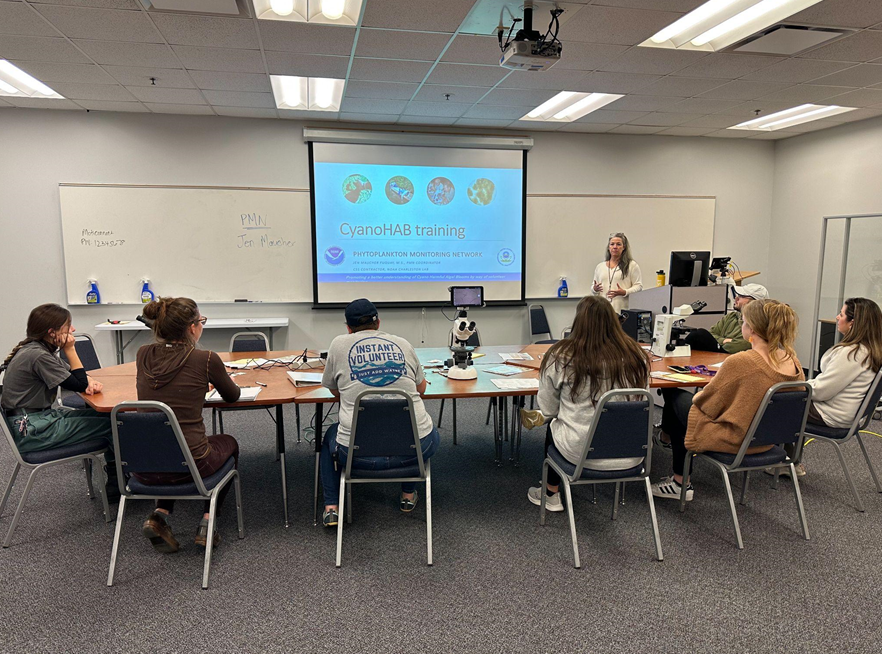
Last month, staff from NCCOS’s Phytoplankton Monitoring Network led a training at Coastal Carolina University on algal sampling, microscopy, and identification of freshwater cyanobacteria.
The training was primarily for researchers and students affiliated with the university’s Waccamaw Watershed Academy, established in 2004 to meet the need for watershed management expertise in Horry and Georgetown Counties in South Carolina and Brunswick and Columbus counties in North Carolina.
Faculty associated with the academy are working to understand the sources, transport pathways, and biological impacts of pollutants in the Waccamaw Watershed, including mercury, pathogenic bacteria, oxygen-demanding substances, and nutrients. The NCCOS training will empower the academy’s existing monitoring programs to further evolve in service to the community by enabling staff to better identify emerging concerns, such as harmful freshwater cyanobacteria.
Harmful algal blooms occur when colonies of marine or freshwater algae grow out of control while producing toxins harmful to people and animals. Only a small number of species have the capacity to form harmful blooms, but when they do, the effects can be severe for coastal resources, local economies, and public health.
